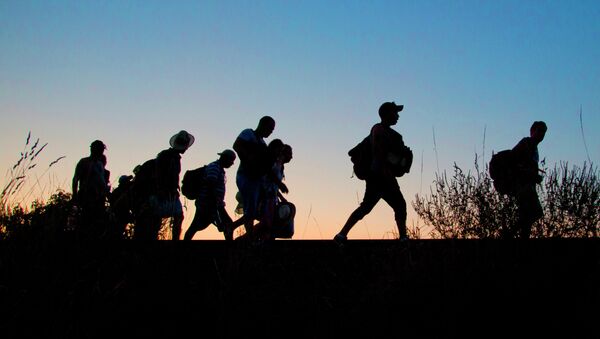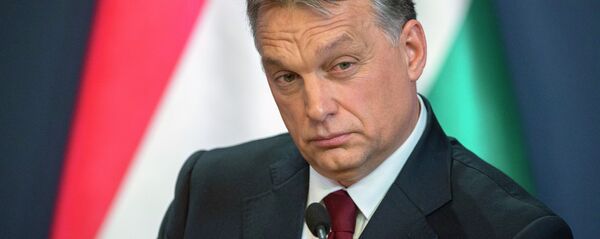Gyorgy Schopflin, a former BBC employee and London-based professor, is an MEP for Hungarian Prime Minister Viktor Orban's conservative Fidesz party.
In a Twitter spat with Andrew Stroehlein, Human Rights Watch's Brussels-based European media director, Schopflin made his swine-based policy recommendation.
Andrew Stroehlein initially posted photos showing root vegetables carved into shapes of human faces, which had been put up along the Hungarian Serbian frontier.
These images had earlier appeared on a Facebook page that supports Hungary's border troops, with the caption:
"Instead of scarecrows, these are 'scarepeople' made from sugar beet. Seems to work, nobody cut through the fence here in four weeks."
Stroehlein objected to the images, writing:
"Refugees are fleeing war and torture, Hungary. Your root vegetable heads will not deter them."
Refugees are fleeing war & torture, Hungary. Your root vegetable heads will not deter them. https://t.co/QJfk1lJCnw pic.twitter.com/YpCR3nkgyb
— Andrew Stroehlein (@astroehlein) August 19, 2016
Then, on Saturday (20 August), Gyorgy Schopflin replied to Stroehlein:
"Might do so. Human images are haram," he said, referring to acts that are forbidden under Islam.
"But agree, pig's head would deter more effectively."
Last night, a member of European Parliament suggested putting pig heads on Hungary's border fence to scare refugees pic.twitter.com/QCKK11Xn1r
— Andrew Stroehlein (@astroehlein) August 21, 2016
The response has been swift on social media, with many decrying Schopflin as ignorant.
.@schopflinMEP An MEP spouting such xenophobic filth… You are an embarrassment to Hungary, to Europe & to humanity.
— Andrew Stroehlein (@astroehlein) August 20, 2016
Schopflin has since back pedaled on his comments, telling Reuters that it was part of a "thought experiment."
Nonetheless, the episode highlights the ongoing deep divisions across Europe on how to best manage the huge influx of migrants, many fleeing death and destruction in the Middle East and Africa.
Under Prime Minister Orban's leadership, Hungary has already take one of the toughest stances on this year's crisis.
In July, Hungary declared a national border emergency and erected a razor wire fence along its southern frontier with Serbia, a non-EU nation. Some 10,000 police and soldiers have been deployed to seal the border. Many migrants have been forced to turn back.
The United Nations refugee agency — the UNHCR — condemned Hungary's actions and disputed Hungary's designation of Serbia as a "safe third country" alternative to entering the EU.
Hungary's next step will be decided on October 2, when Hungarians vote in a referendum on whether Hungary should accept future EU quotas on resettling refugees, which would not require the consent of Hungary's parliament.
The Hungarian government has repeatedly claimed that there is a link between immigration and terrorism, with Orban insisting that voting no would be in support of Hungary's independence.



